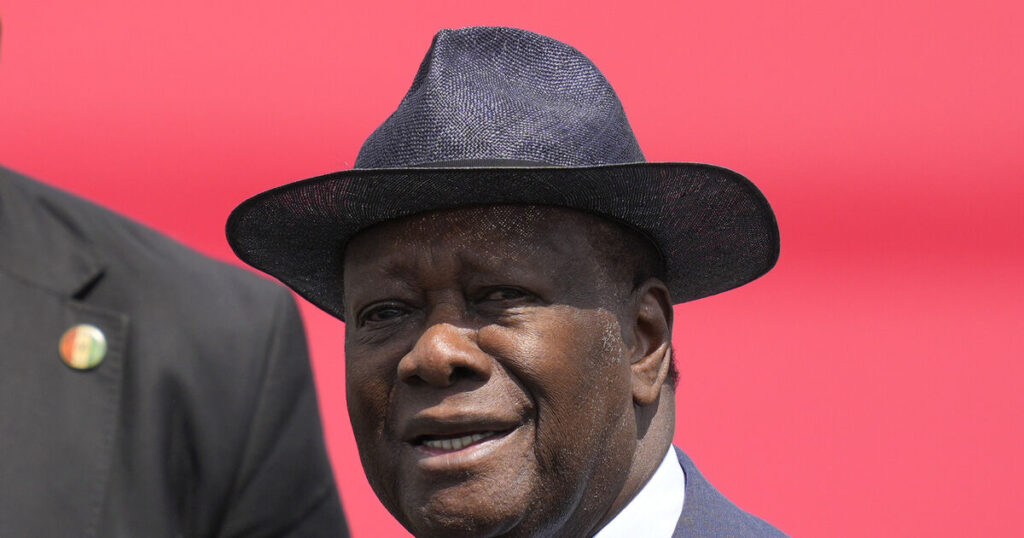Ivory Coast President Alassane Ouattara has announced his intention to seek a fourth term as leader of the West African nation. Elections are scheduled for October.
The legality of his candidacy is under dispute since he amended the constitution to eliminate the presidential term limit.
In a televised address, the 83-year-old president confirmed his plans.
He previously secured a third term in 2020. Initially, he had stated he would not run again.
However, he reversed his decision following the death of his designated successor, Prime Minister Amadou Gon Coulibaly.
“For several months, I have received numerous calls from fellow citizens regarding my potential candidacy in the presidential election,” the president stated.
Referring to the country by its French name, he continued: “Women and young people from all regions of Cote d’Ivoire, and countless anonymous voices from our neighbourhoods, towns and villages have reached out.
“In response to those appeals, I announced on June 22 that, as president of all Ivorians, I would, after careful reflection, make a decision guided solely by the best interest of the nation.”
His main challenger, Tidjane Thiam, has already been disqualified from the race by a court ruling. The court cited his dual French citizenship at the time of his candidacy declaration, despite his subsequent renunciation of French nationality. Dual nationals are prohibited from running for president under Ivorian law.
Elections in Ivory Coast are historically marked by tension and violence. The announcement of Mr. Ouattara’s third-term bid triggered violence resulting in several deaths. Protests have also erupted in response to the court’s decision to bar Mr. Thiam from running.
Mr. Ouattara joins a growing list of West African leaders who have extended their time in power by altering constitutional term limits.
Coup leaders in the region have cited alleged corruption within democratic governments and electoral changes as grounds for seizing power, leading to divisions within the regional bloc, Ecowas.
“For those critical of Ecowas and civilian governments, Ouattara’s decision just reinforces the legitimacy crisis everyone in the region is facing. It makes people like Ouattara look like hypocrites,” Nat Powell, Africa analyst at Oxford Analytica, told the Associated Press.
Mr. Ouattara’s candidacy has been met with strong opposition.
“Alassane Ouattara does not want to leave power — like any self-respecting dictator,” said Guillaume Soro, a former prime minister who was barred from participating in the election.
Affi N’guessan, a candidate representing the opposition Ivorian Popular Front, deemed Mr. Ouattara’s candidacy “illegal” but expressed confidence that “a united opposition will defeat him at the polls”.


